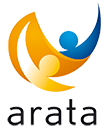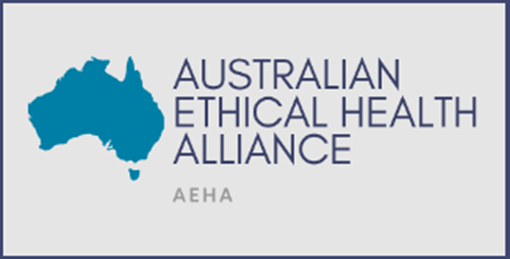The impact of COVID-19 on society is growing along with constant daily changes to how we live our lives and carry out business. ATSA is actively working with the NDIA, NDIS Quality and Safeguards Commission and the TGA to ensure that as an industry we are as well-equipped as possible to work through this.
The Australian Government is updating their information daily and will be a reliable source, particularly the Department of Health webpage. If a notice that is AT-specific comes to hand this will be circulated to you as necessary.
If you have a question that you cannot find the answer to, please email ATSA for assistance. We have a number of government connections that we can access to assist you, especially if you have a concern.
HOW ATSA HAS BEEN INVOLVED
ATSA has been working with ARATA, the National Assistive Technology Alliance (NATA) and with the NDIA, to identify what help our industry requires from the Government to ensure it can continue to “business as usual” in the current climate.
One of the main points raised to date is access to PPE. Under the current set of circumstances, not all providers of supports are viewed as “medical” support workers which is preventing supply and support of AT.
WHAT YOU SHOULD KNOW
A central point of information is needed for the industry and participants to allow a mutual understanding of what actions are currently in place and what they can do. We understand that some of the information available is confusing or hard to find, which we have been asked quite often.
Here is some information we have identified:
- The Australian Department of Health
- The NDIS Notification of Event page (for providers)
- The NDIS Commission
- NDIS information for providers
- NDIS information for participants
- Free NDIS training to identify and respond to COVID-19
- The NDIS COVID-19 response page
- Safe Work Australia advice to employers
- NDIS Sector information
The key is to establish workplace policies that ensure all staff understand their duty to take reasonable care for their own health, as well as those around them. Practising good hygiene has been the strongest recommendation by our Government, which includes:
- Washing their hands often, with soap and water, or carrying hand sanitiser and using it as needed.
- Practise social isolation, i.e. 1.5m from others.
- Covering their mouth when coughing or sneezing, but not using their hands to do so.
- Seeing a health care professional if they start to feel unwell.
- If unwell, avoiding contact with others (including shaking hands or other touching, such as hugging).
CHANGES TO YOUR BUSINESS OPERATION
If you are a registered provider of supports with the NDIS Quality Safeguards Commission (NDIS QSC), it is a condition of your registration to notify the NDIS QSC of certain changes and events – especially those which substantially affect your ability to provide the supports and services that your business is registered to provide. For example delayed shipping for spare parts, minimal staff due to illness or limited PPE access.
The impact of COVID-19 on society is growing along with constant daily changes to how we live our lives and carry out business. ATSA is actively working with the NDIA, NDIS Quality and Safeguards Commission and the TGA to ensure that as an industry we are as well-equipped as possible to work through this.
The Australian Government is updating their information daily and will be a reliable source, particularly the Department of Health webpage. If a notice that is AT-specific comes to hand this will be circulated to you as necessary.
If you have a question that you cannot find the answer to, please email ATSA for assistance. We have a number of government connections that we can access to assist you, especially if you have a concern.
HOW ATSA HAS BEEN INVOLVED
ATSA has been working with ARATA, the National Assistive Technology Alliance (NATA) and with the NDIA, to identify what help our industry requires from the Government to ensure it can continue to “business as usual” in the current climate.
One of the main points raised to date is access to PPE. Under the current set of circumstances, not all providers of supports are viewed as “medical” support workers which is preventing supply and support of AT.
WHAT YOU SHOULD KNOW
A central point of information is needed for the industry and participants to allow a mutual understanding of what actions are currently in place and what they can do. We understand that some of the information available is confusing or hard to find, which we have been asked quite often.
Here is some information we have identified:
- The Australian Department of Health
- The NDIS Notification of Event page (for providers)
- The NDIS Commission
- NDIS information for providers
- NDIS information for participants
- Free NDIS training to identify and respond to COVID-19
- The NDIS COVID-19 response page
- Safe Work Australia advice to employers
- NDIS Sector information
The key is to establish workplace policies that ensure all staff understand their duty to take reasonable care for their own health, as well as those around them. Practising good hygiene has been the strongest recommendation by our Government, which includes:
- Washing their hands often, with soap and water, or carrying hand sanitiser and using it as needed.
- Practise social isolation, i.e. 1.5m from others.
- Covering their mouth when coughing or sneezing, but not using their hands to do so.
- Seeing a health care professional if they start to feel unwell.
- If unwell, avoiding contact with others (including shaking hands or other touching, such as hugging).
CHANGES TO YOUR BUSINESS OPERATION
If you are a registered provider of supports with the NDIS Quality Safeguards Commission (NDIS QSC), it is a condition of your registration to notify the NDIS QSC of certain changes and events – especially those which substantially affect your ability to provide the supports and services that your business is registered to provide. For example delayed shipping for spare parts, minimal staff due to illness or limited PPE access.



